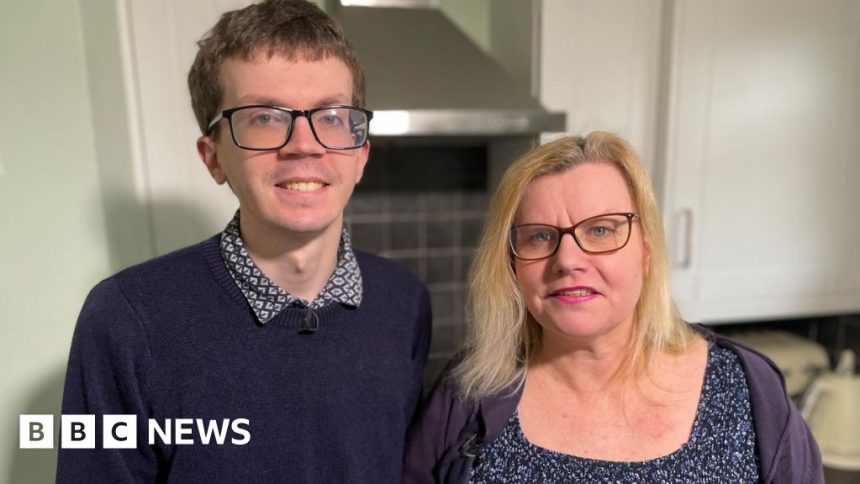Mum’s 20-year fight for epilepsy drug compensation
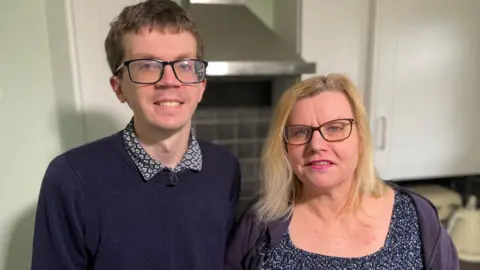 BBC
BBC“Who will look after our children when we’re no longer here? At the moment that’s nobody.”
Catherine Cox, from Keyworth in Nottinghamshire, was one of thousands of women who took the epilepsy drug, sodium valproate, while pregnant, something which is now advised against.
Her son Matthew, now 23, was born with a range of conditions, including autism, ADHD, epilepsy and several learning disabilities.
At the age of 18 months, he was diagnosed with foetal valproate syndrome, indicating the medication his mother took was the cause of his problems. Mrs Cox has been campaigning for compensation ever since.
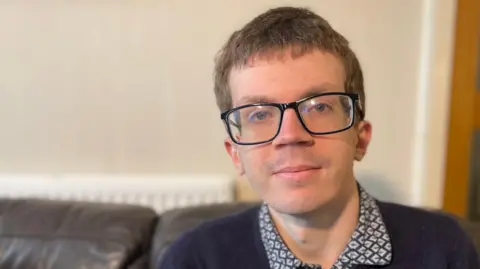
It is thought thousands of children in the UK have been left with disabilities caused by valproate since the 1970s.
Instructions for doctors – and, more recently, patient leaflets – say valproate should not be used during pregnancy unless there is no safer alternative and only after a careful discussion of the risks.
Before undergoing fertility treatment, Mrs Cox was advised it was “fine” to continue taking valproate.
“To then find out that the medication that you have taken in good faith has caused the problems your child will carry for the whole of their life is an awful thing,” she told the BBC.
Mr Cox has a job at a local bakery but relies heavily on his mother.
“It can be a struggle at times,” he said. “I do worry at times but I also worry about my mum. Obviously I love my mum.”
Mrs Cox told the BBC she had grown weary of a lack of action from successive governments.
“We’re not getting any younger. I started this when I was 31 – I’m 53 this year,” she said.
“I honestly think that the government want the parents to expire, because the children will not be able to fight for the redress that they need.”
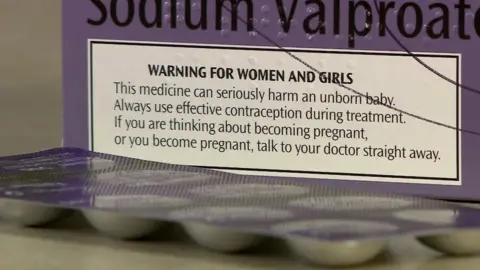
In February 2024, a report by the Patient Safety Commissioner, Henrietta Hughes, said there was a “clear” and “urgent” need to compensate those harmed by valproate, both financially and otherwise.
Dr Hughes made a series of recommendations, including a specific housing grant for valproate victims, a removal of the barriers many face in getting their special educational needs recognised, and work to issue an apology to each individual affected.
More than a year has since passed, and the government is still working on a response.
Mrs Cox said: “We have pulled various governments over time kicking and screaming to this point where they have acknowledged that the difficulties for up to 20,000 children were caused by this drug.
“As we go on, what we need is something to make up for their loss of potential.”
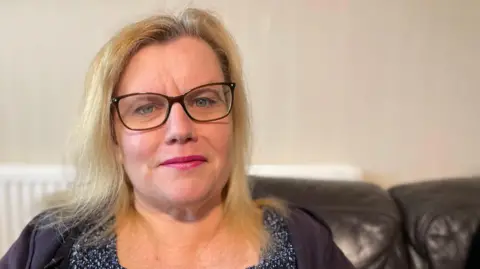
The delays were recently raised at Prime Minister’s Questions by Mrs Cox’s MP, Labour’s James Naish, who represents Rushcliffe.
Sir Keir Starmer responded it was “obviously a really important matter”.
“We will provide an update on the Patient Safety Commissioner’s report at the earliest opportunity to the House,” the prime minister added.
Naish said: “We’re all working hard. The government has a huge amount on its plate. It’s already dealt with big scandals such as the infected blood scandal.
“We just want to make sure that this is one of those issues as well.”
Despite two decades of setbacks, Mrs Cox is hoping she will hear some positive news soon.
“The Labour government were really, really supportive in opposition. Let’s see them stand by their word,” she said.
“As a society we are judged by how we treat our most vulnerable and the children affected by valproate are our most vulnerable. They need that help going forward.”
Follow BBC Nottingham on Facebook, on X, or on Instagram. Send your story ideas to eastmidsnews@bbc.co.uk or via WhatsApp on 0808 100 2210.



